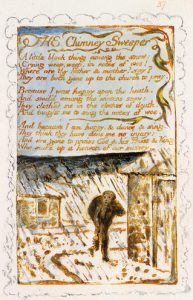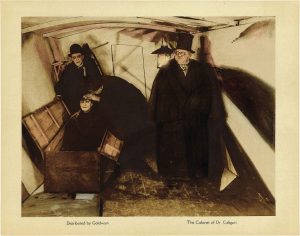“Hi non sunt homines”: Perspectives on Humanization on Wells’s Island of Dr. Moreau as Influenced by Contemporary Philosophy and Surgical Science
Humans have, for millennia, felt a desire to impose their unique characteristics on other animals. When we look at a dog, we typically imagine that it looks at humans around it much as we look at other people. We imagine that the dog is thinking about food, its owner, or its favourite toy – just as a human baby might think about his or her parents or favourite toy.
Songs of Innocence and of Experience: A Heaven of Misery
Life in late 18th-century London was difficult, especially for those who were unfortunate enough to be stricken with poverty during this time of industrial revolution. Arguably, the people who suffered from this hardship the most were children, which is illustrated in both of William Blake’s “The Chimney Sweeper” poems.
Power to the People: The role of the People in The Prince
In The Prince, Niccolo Machiavelli promises to “set aside fantasies about rulers, then, and consider what happens in fact.”[1] The result is a book with a political philosophy that eludes classification, even today.
Looking for clothes but grasping at darkness in The Cabinet of Dr. Caligari – an exploration of negative space
Chekhov’s concept of ‘showing not telling’ continues to pervade both film and text today. Whereas contemporary films have access to dialogue as a medium of communication between director and audience, silent films instead heavily rely on visual expression as a means of communication.
The Intuitionist: Where Black Men Tell White Lies and Silence Turns Loud
The human experience, as subjective and relative as it may be, is rooted deeply in two worlds: that which can be seen and physically touched, and that which cannot. As Colson Whitehead tells the story of Lila Mae’s life in the dystopian elevator world of The Intuitionist, he explores the complexities of racism and religion by illuminating the invisible grounds in which they are rooted.
Investigating the Death of the Author in Paul Auster’s City of Glass
The structural critic describes the characters of a novel as nothing more than “the noise of their name” (Gass, 1970, 49), as any fixed aspect of the narrative structure to which the reader will always return as “music returns to its theme” (49). By emphasizing the instability of the structural character, the poststructural Derridean deconstruction seeks to expose a Trace – language’s innate absence and Nothingness – to demonstrate that the end and origin of all literature belongs not to the author and their characters, but to language.
The Sound of Scandal: An analysis of the thematic significance of jazz in Toni Morrison’s Jazz
While many critics of Toni Morrison’s novel Jazz choose to focus on her use of the music form’s distinct structure in the narrative voice, jazz music itself also plays a vital thematic role in the story. By incorporating motifs of jazz into her Harlem-based narrative, Morrison urges readers to draw comparisons between jazz music and the decadent yearnings of her characters, as well as notice the City’s influence over these seemingly personal drives through the intimate connection jazz has to it.






